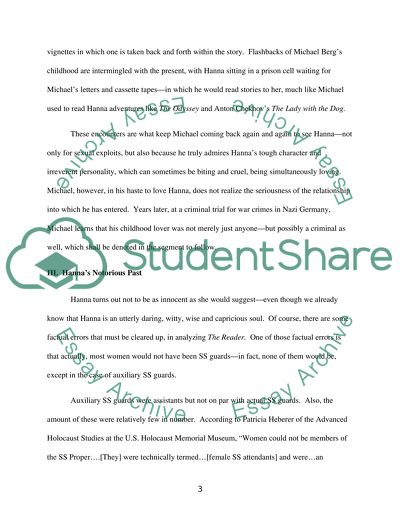Cite this document
(“A Literary Analysis of The Reader By Bernhard Schlink Research Paper”, n.d.)
Retrieved from https://studentshare.org/literature/1422486-the-reader-by-bernhard-schlink
Retrieved from https://studentshare.org/literature/1422486-the-reader-by-bernhard-schlink
(A Literary Analysis of The Reader By Bernhard Schlink Research Paper)
https://studentshare.org/literature/1422486-the-reader-by-bernhard-schlink.
https://studentshare.org/literature/1422486-the-reader-by-bernhard-schlink.
“A Literary Analysis of The Reader By Bernhard Schlink Research Paper”, n.d. https://studentshare.org/literature/1422486-the-reader-by-bernhard-schlink.


